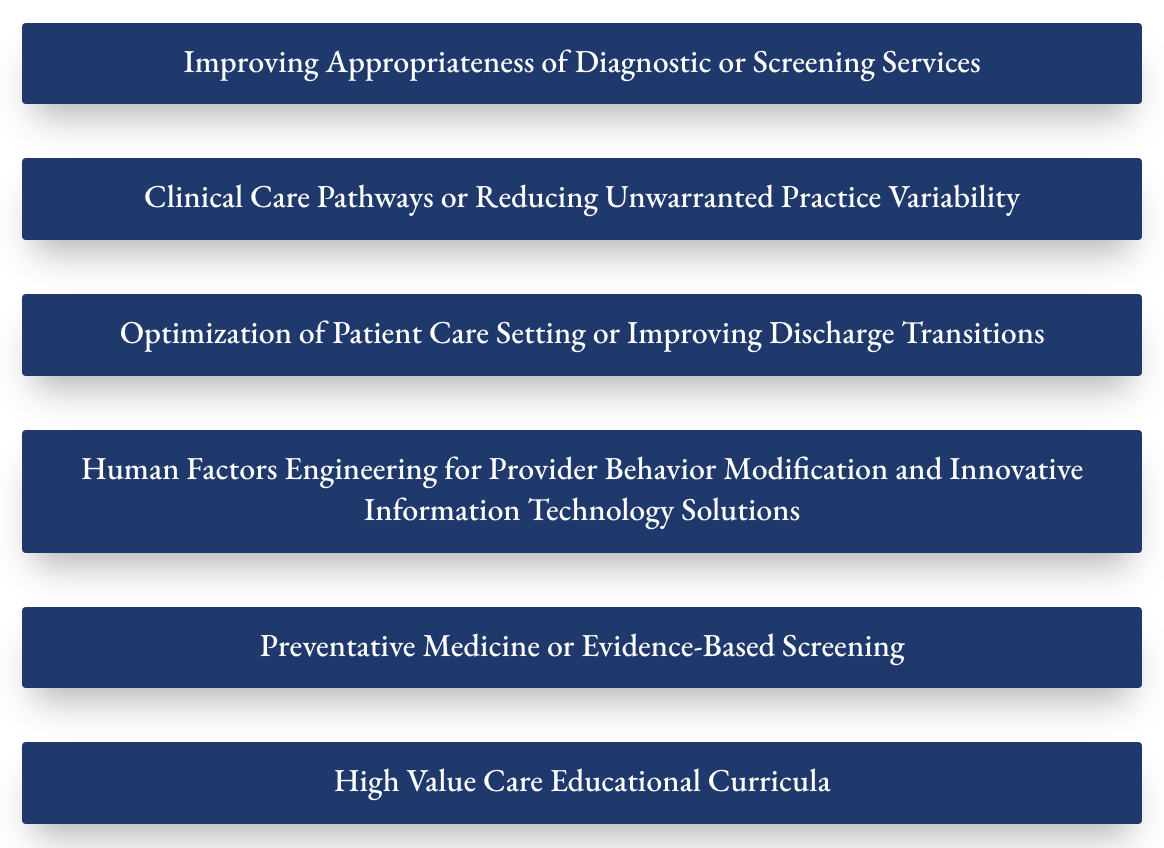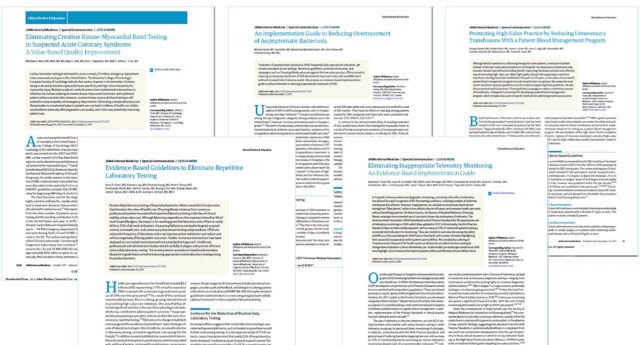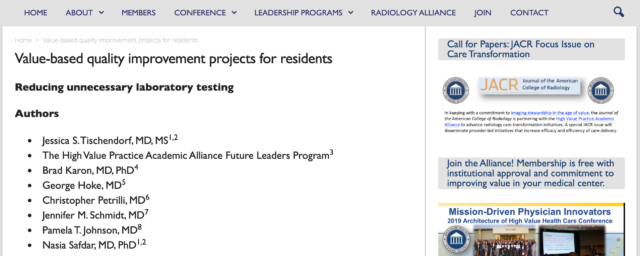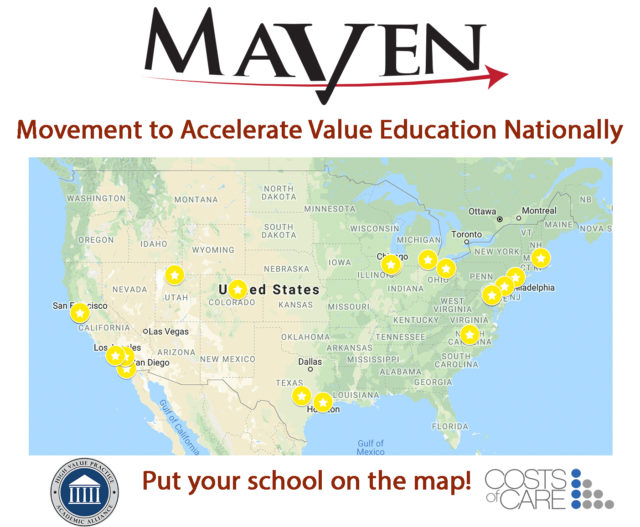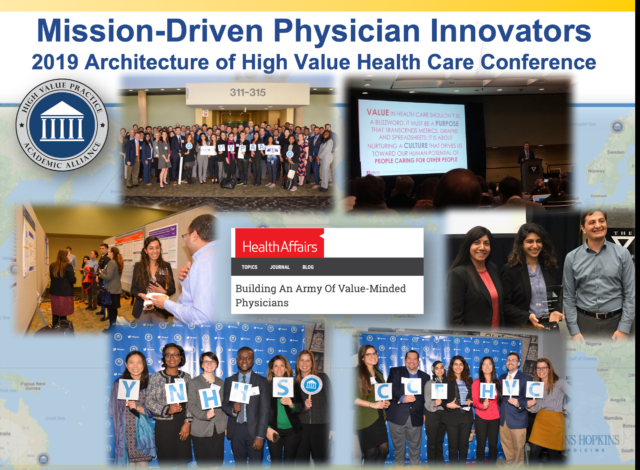From the 2023 HVPA National Conference
Oren Wei BS (Johns Hopkins School of Medicine), Connie Cai BA, Tara Srinivas BSc, MPhil, Melanie Alfonzo Horowitz BA, Kalyani Kumar MD, Amanda Bertram MS, Tina Kumra MD, Niloofar Latifi MD, Amit Pahwa MD, Ashwini Niranjan-Azadi MD
Background:
Given the rising costs of healthcare and increasing prevalence of unnecessary medical treatment in the United States, high value care (HVC) is an increasingly essential part of medical school curricula. A three-day course for first year medical students at the Johns Hopkins University School of Medicine (JHUSOM) was implemented in 2015 to educate students on HVC. The impact of this elective course was analyzed over the past three years by measuring JHUSOM students’ attitudes and perceptions of HVC in clinical settings.
Aim:
To understand if a three-day long elective course on HVC impacted medical students’ experience, comfort with, and attitudes towards HVC during their Longitudinal Ambulatory Clerkship –a weekly half-day ambulatory clinical rotation in outpatient family medicine–and/or their core clerkship rotations (internal medicine, surgery, neurology, psychiatry, women’s health, emergency medicine, and pediatrics).
Methods:
A voluntary survey evaluating attitudes surrounding HVC during clinical courses (IRB00276795), was distributed in February 2021, February 2022, and February 2023 to medical students at JHUSOM. Some, but not all, of the students who received the survey had elected to complete a course titled “Topics In Interdisciplinary Medicine: High Value Healthcare” (“TIME: HVC”) in their first year of medical school. Those who did not had instead elected to complete a course related to global health. Descriptive analyses, chi-square analyses, and unpaired, homoscedastic Student’s t-tests were conducted in Microsoft Excel to analyze the survey results.
Results:
Between 2021-2023, there were a total of 181 survey responses. Out of those responses, 96 (53.0%) had taken the elective, “TIME: HVC”. Students who took the “TIME: HVC” course were more likely to recognize low value labs/imaging studies than students who did not take the course (p = 0.011). However, there was no reported difference in how often students discussed the costs of ordered labs/imaging when caring for patients with their preceptors between the two groups. Nor was there a significant difference in the reported frequency of students voicing specific concerns about high value care, or bringing an unnecessary lab or test to the preceptor’s attention. The primary barrier to students voicing their concerns about low-value care or discussing high-value care with their preceptors was reported lack of knowledge. A majority of students (78.0%) mentioned that they “did not feel like I had enough knowledge” to initiate discussions about HVC with their team. Furthermore, there was no significant difference in the likelihood of students mentioning this barrier between those who took the “TIME: HVC” course and those who did not.
Conclusions:
The “TIME: HVC” first-year elective course helped medical students identify low value care more readily in the clinical setting. Despite this, students were not more likely to bring up concerns regarding low-value care practices with their preceptors and staff. Even when students were able to identify low-value care, they felt unequipped to bring up such concerns, with a self-perceived lack of knowledge (whether regarding HVC or clinical practice) being the main barrier. While the “TIME: HVC” course improved students’ abilities to identify low versus high value care practices, efforts should be made to empower students to apply the concepts learned in the course in all clinical settings. It will also be essential to ensure preceptors are receptive to having these discussions with learners.
